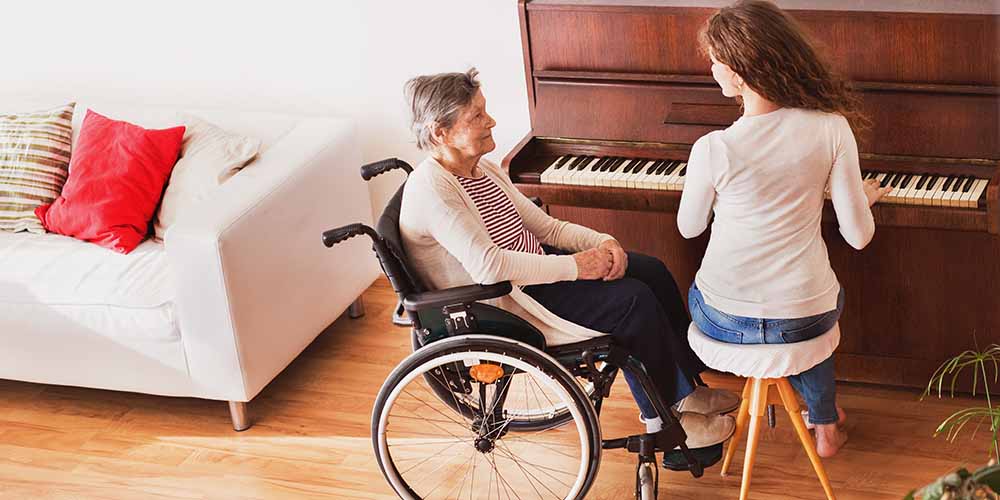
Memory loss is one of the widely known symptoms of Alzheimer’s disease, but many other skills and abilities become impaired as well. Persons living with dementia experience changes in the brain’s temporal lobe that affect their ability to process language. Even in the disease’s early stages, caregivers may notice a decline in formal language (vocabulary, comprehension, and speech production), which all humans rely upon to communicate verbally. Symptoms include word loss, confusion during the conversation, not being able to follow a storyline, and decreased speech.
As a child is learning a language, nouns are stored in the left side of the temporal lobe. So, when dementia problems begin in this region of the brain, it is common for the person to use the wrong word, even for a simple object, or forget a familiar person’s name. When this happens, a caregiver should respond both with curiosity to learn what is meant and with compassion to allow the person to retain dignity in spite of the mistake. Similarly, the person with dementia may altogether forget the word or name and struggle to finish a sentence; for the same reason, a caregiver should not resort to language or tone that emphasizes the person’s forgetfulness and makes him feel foolish.
As the disease progresses, formal language usually disappears, and the person living with dementia or Alzheimer’s Disease is left with little ability to communicate his needs. He may stop talking completely and rely solely on non-verbal cues such as facial expressions and emotional commotions.
At this stage, behaviors are often the only way to communicate what is on the person’s mind. These are called dementia-related behaviors. They are messages about ideas, feelings, and needs, and he is telling you in the best way he can—the only way he can.
For instance, a caregiver who provides personal care (bathing, toileting) too quickly causes frustration for the person living with dementia; he can’t process what is happening. Frustration can turn to resistance, anger, and even aggression, all of which may be avoided if the caregiver understands the needs of the person in his or her care, which in the case of this example is simply to move slower and with greater care.
As with much of life, there is a silver lining to the reality of dementia-related language decline. The brain’s temporal lobe is two-sided. The left side deteriorates while the right side remains intact, often to the end of the dementia journey. The right side enables a person to engage in basic social chit-chat, clap or toe-tap to the rhythm of music and poetry, and even dance.
A person living with dementia can find great comfort and joy in listening to his favorite music or singing along to songs from his past. It’s not uncommon for a person to retain the ability to recite favorite scriptures or poems, even word for word. This can happen even in persons who are otherwise non-verbal.
Care partners can learn new ways to interact with their loved ones who have dementia by engaging in activities that rely on the right side of the temporal lobe.
For more information about this topic, watch this video from the world-renowned dementia-education leader Teepa Snow, MS, OTR/L, FAOTA:
Living With Dementia, a Hope Hospice Program
Hope Hospice offers complimentary Living With Dementia classes that provide education and support to family caregivers, regardless of whether the loved one is on our service.
You might also like: